
Roujiamo: China's 2,200-year-old 'burger'
My first encounter with roujiamo (肉夹馍) was on an early winter's day a quarter of a century ago, in a bitterly cold, wind-scoured Beijing alleyway. There, I stumbled across a weather-beaten itinerant vendor, braced against the chill in a thick padded-cotton jacket and fur hat, making roujiamo to order off the back of a three-wheeled bicycle cart. From a bubbling, soot-black cauldron suspended over a blazing puck of coal, he ladled out long-braised morsels of pork and plunked them onto a tree-stump chopping block. Next, he used a cleaver to mince the pork together with what seemed like an entire fist's-worth of coriander, added a dollop of rich broth from the pot, and wielded the cleaver once more to deftly slice open a crisp, hand-sized freshly baked flatbread and nestle the glistening pile of meat inside.
When he handed it over, wrapped in a plastic bag, it was so hot that it scalded my fingers. I gingerly peeled back the edges of the bag and took a bite. In the fading light of that winter afternoon, roujiamo – the crunch of the bun, the meltingly tender pork with its scalding burst of juice and the bracing tang of coriander – was a revelation.
Roujiamo at its best is a primal thing. Cooked and sold in the elements, it's a street food that comes wreathed in an aura of ancient dynasties, the Silk Road and far-off desert frontiers. The sandwich is closely associated with the north-central city of Xi'an, in Shaanxi province. Since 202 BCE, Xi'an has been both the eastern terminus of the Silk Road and the capital for 13 more-or-less successive Chinese dynasties.
The meat preparation used to make the filling for roujiamo is traditionally traced back to the Warring States period (475 to 221 BCE). The introduction into China of Central Asian-style flatbreads, like the kind used in roujiamo, is often credited to Ban Chao, a Chinese general who spent more than 30 years battling a confederation of nomadic tribes during the 1st Century to regain control of the farthest western reaches of China.
Every family has its own roujiamo recipe, but there are some constants. First comes the lazhi (腊汁), or stock, which includes a list of spices that reads like the cargo manifest for a Silk Road caravan: ginger, star anise, cassia, Sichuan peppercorn, loquat and two medicinal herbs called Fructus Amomi and Lanxangia tsaoko (all originally domesticated in China); dried tangerine peel (likely domesticated in the Indo-Burma region); white pepper, sand ginger and cardamom (from South India); cumin (from Western Asia); and nutmeg and clove (from the Spice Islands of Indonesia), to name just the most common ones. A special premium is placed on "aged" stock (陈年老汁) – the most legendary examples of which are purported to have been lovingly tended to and bubbling away for decades, if not centuries.
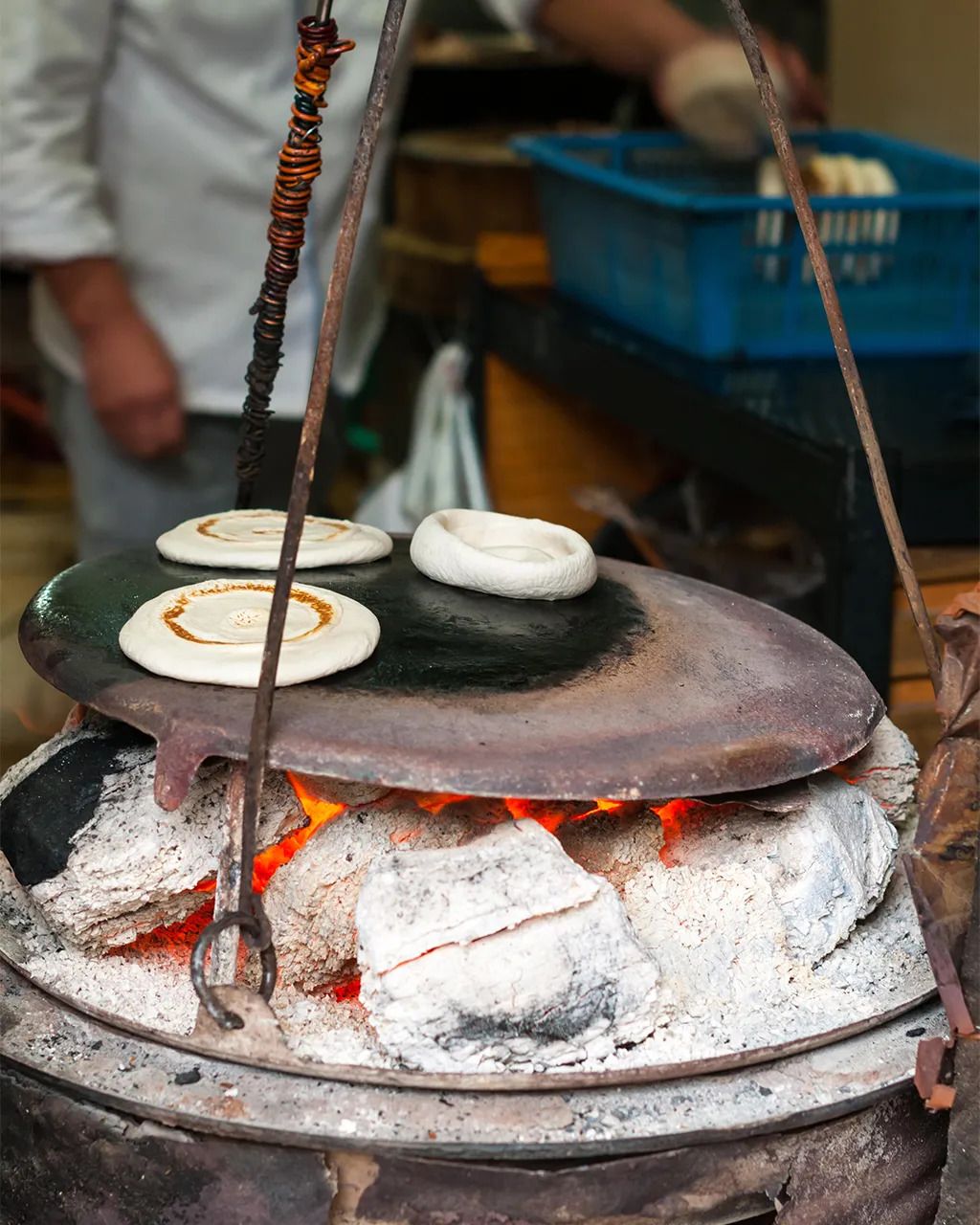 The bun used for roujiamo dates to the 1st Century
The bun used for roujiamo dates to the 1st Century
Once the stock is made, thick slices of pork belly take their turn in the pot, simmering for hours. The flatbread bun, called baijimo (白吉馍), takes its name from what is today known as Beiji township. Sitting some 130km northwest of Xi'an, the town was once a horse-resupply post along China's equivalent of the Pony Express system, which ran far west to the most distant reaches of the empire. Baijimo was traditionally made by sticking partially leavened dough against the wall of a wood-fired, Central Asian-style oven. Today, in a modern nod to simplicity and expedience, it's often cooked to blazing-hot crispness in a pan.
Sadly, thanks to rapidly rising standards of living and government regulation, the more rustic styles of roujiamo have largely been chased out of the alleyways of Chinese cities. But roujiamo is still much-loved in China, and it's in little danger of disappearing. Its enduring popularity has spawned numerous nationwide chains such as Zhang Family Ziwu Road Roujiamo (子午路张记肉夹馍) and Bingz Crispy Burger (西少爷). And even in bustling southern Chinese cities like Shenzhen, it's often possible to find a roujiamo vendor somewhere deep within the local food courts, albeit with the pork simmering away in an electric slow cooker rather than over an open fire.
To be sure, roujiamo is far from the perfect food. Despite its comparison to a hamburger, it's notoriously hazardous to eat on the go. Proper roujiamo is filled to bursting, regardless of the potential consequences for one's clothes and dry-cleaning budget. (Wrapping it in a plastic bag helps, but only so much.)
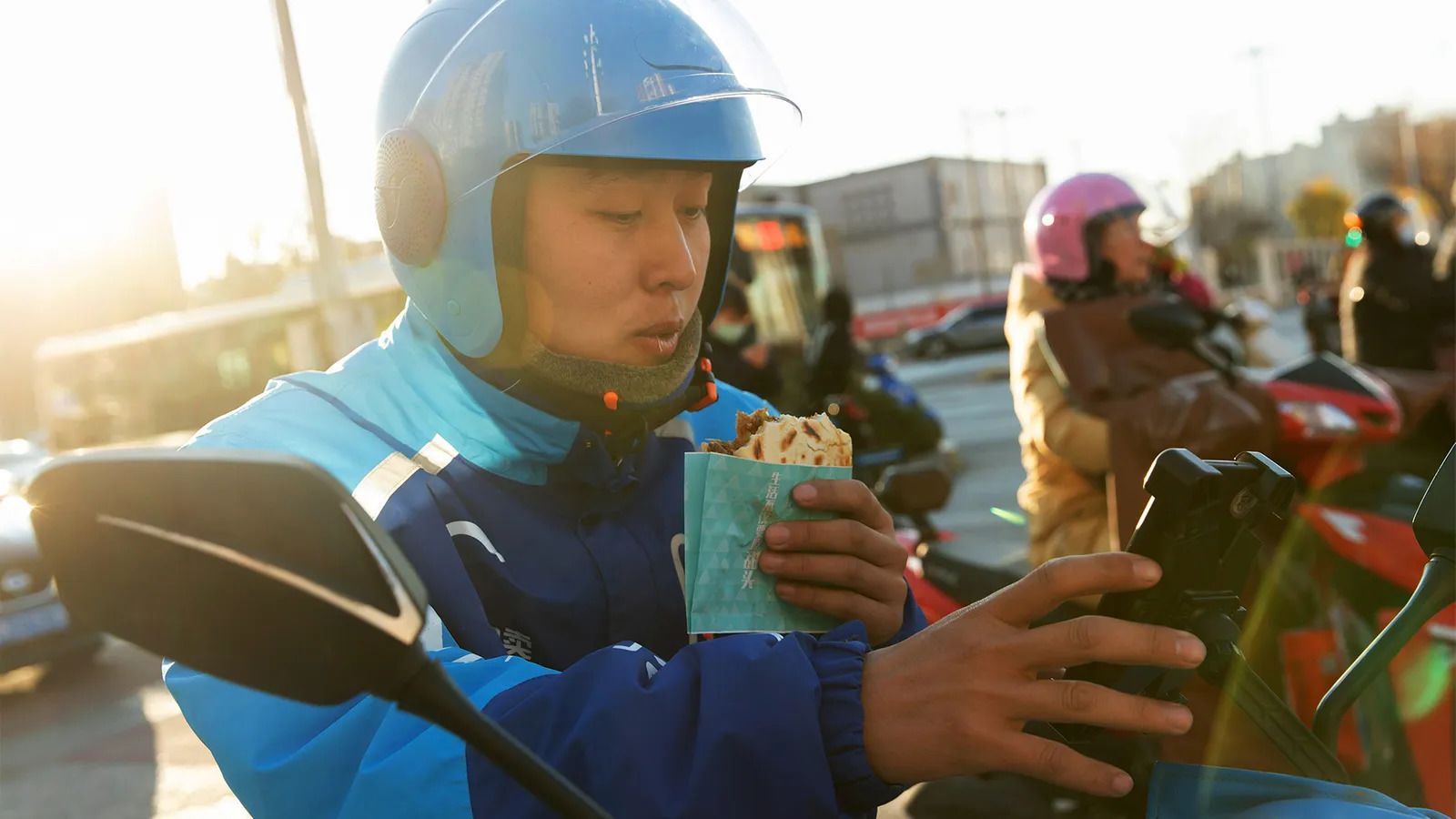 Roujiamo is notoriously difficult to eat on the go
Roujiamo is notoriously difficult to eat on the go
"You have to use both hands to eat roujiamou; otherwise, the filling's just going to launch out from both sides of the bun," said Beijing-based film director Chen Xiaoqing. "It doesn't really work to walk around and eat roujiamou at the same time."
Chen has spent the better part of the past several decades mapping China's culinary landscape in a series of wildly popular food documentaries, including Netflix's Flavorful Origins. While the style of roujiamo people are most familiar with is associated with Xi'an, he says, there's actually a range of styles, distinctly different from each other.
His own favourite is Tongguan roujiamo (潼关肉夹馍), named after a garrison town that, in days long past, guarded a strategic pass roughly 120km east of Xi'an. The flatbread used for Tongguan roujiamo is unlike that used in the Xi'an style. With less leavening, it has coils densely folded together like a snake charmer's basket; crisp and flaky, the bread shatters into the pork with every bite.
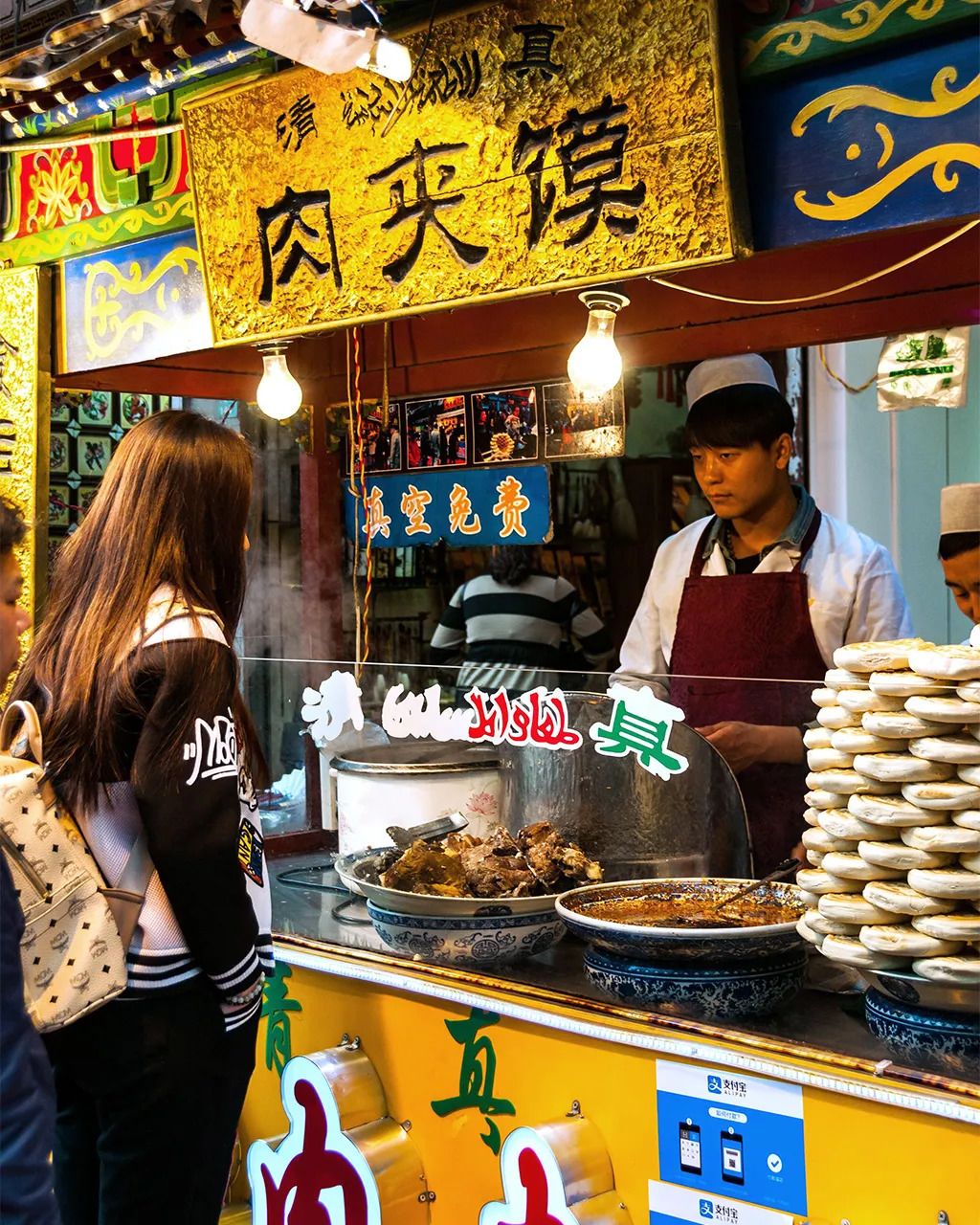 The precise origins of roujiamo are shrouded in the mists of time
The precise origins of roujiamo are shrouded in the mists of time
"The surface is really rough and uneven, so when you pick it up, it just feels good in your hands," Chen said. "It takes real heart to make it right – but when that happens, it makes me dizzy."
Other commonly seen styles include one with a filling of la niurou (腊牛肉), a close cousin of corned beef that's associated with Xi'an's substantial Muslim population. The city of Qishan, about 120km west of Xi'an, has its own version made with minced pork and red chilies. And over the past few years, a variation called duijia (对夹), from Chifeng in far-off Inner Mongolia has taken China by storm: it features a bun made from millet flour and a crisp, smoked pork filling.
Roujiamo has made its way abroad, too. Chen says his production team, en route to watch Chelsea football team play in London, happily stumbled upon a restaurant called Xi'an Impression selling roujiamo directly across from Emirates Stadium. Bingz Crispy Burger has opened locations in Singapore and Canada. And in New York, Xi'an natives David Shi and his son Jason Wang have turned a basement stall in a Flushing shopping centre into a local empire called Xi'an Famous Foods, which now boasts a dozen locations. Wang says there was never any doubt that roujiamowould feature prominently on the menu.
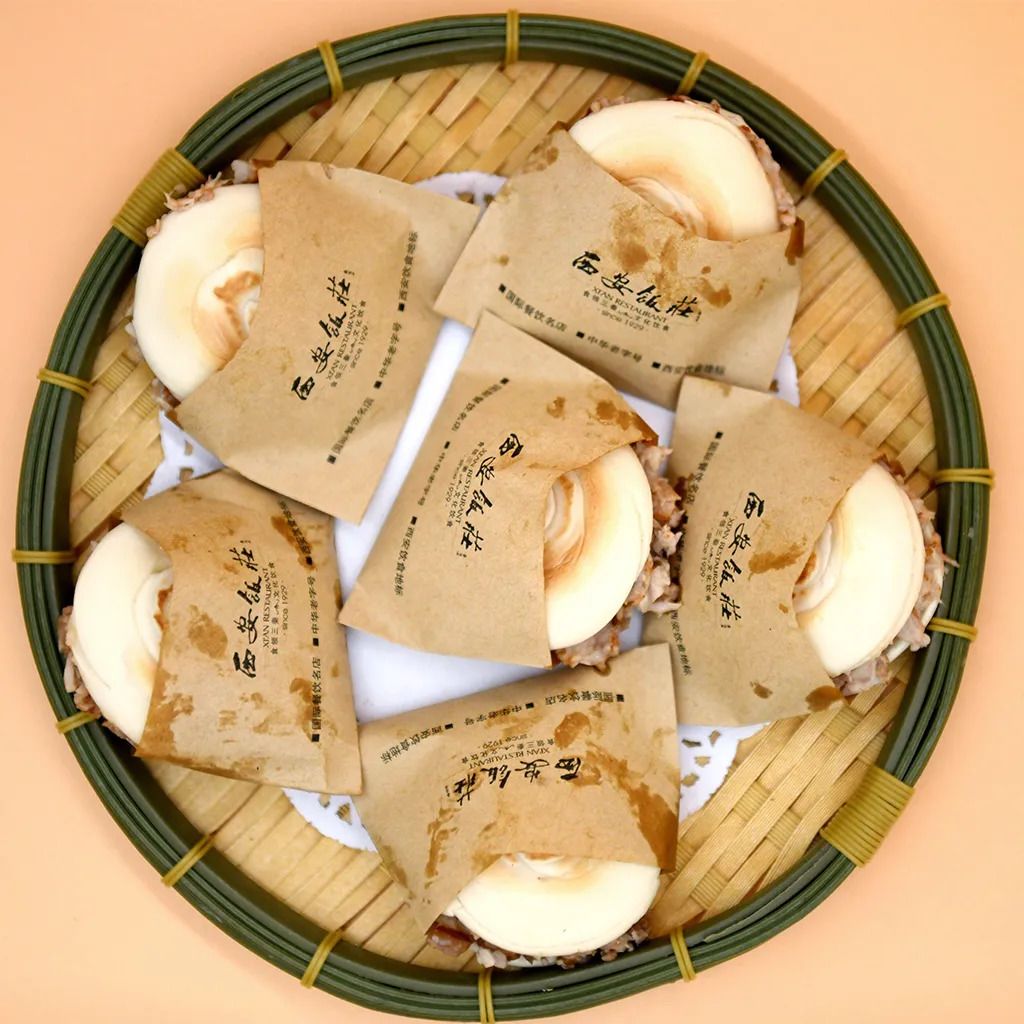 The enduring popularity of roujiamo has spawned numerous nationwide chains
The enduring popularity of roujiamo has spawned numerous nationwide chains
"It's such a classic dish of Xi'an," he said. "It'd be like saying we're going to open an American brunch restaurant, but without any bacon."
Roujiamo has room for experimentation and innovation. Seitan roujiamo, made from wheat gluten, has made occasional appearances on the specials board at Xi'an Famous Foods. And even in Xi'an itself, it's possible to find a mash-up of roujiamo and the Sichuan stalwart malatang (麻辣烫), or hot spicy soup. In malatang roujiamo,a traditional roujiamo bun is stuffed chock full of sinuous ribbons of tofu skin, sliced potatoes and thick slices of seaweed, all bathed in an incendiary dose of chilli oil.
For all that, though, roujiamo has proven stubbornly resistant to high-concept reinvention, and the best versions don't stray too far from the classic, rough-around-the-edges approach. McDonald's learned this the hard way in 2021 when the company finally decided to try its own hand at "the world's oldest hamburger". Roujiamo appeared on the breakfast menu for a 24-day limited run to mark Chinese New Year – and promptly earned scads of angry hashtags for, bafflingly, being made with chicken (served in criminally meagre portions, to boot). Roujiamo has not appeared on the menu since.
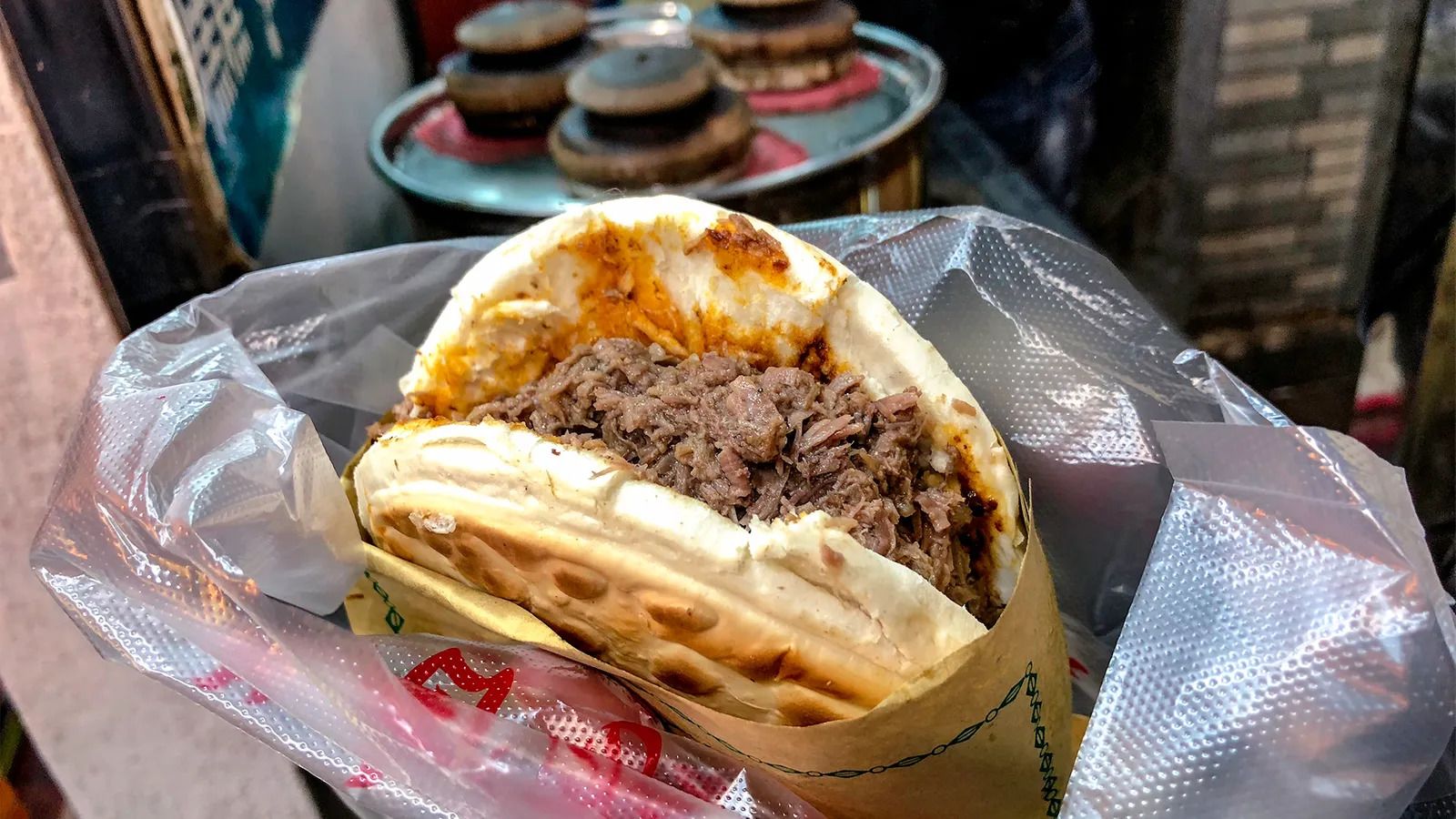 Roujiamo is often served in a plastic bag
Roujiamo is often served in a plastic bag
So where is roujiamo headed next? When we talked, Chen mentioned that he'd heard from a famous restaurateur in China who is working to develop a roujiamo that people can more easily eat while they walk. Then he laughed.
"I feel like if you try to eat a good roujiamou while you're walking down the street, it's just kind of an insult to it – a sort of disrespect," he said. Chen paused for a second, as if lost in a happy memory. "To really do it justice, you need to sit very still, close both eyes and savour every bite."











